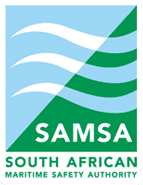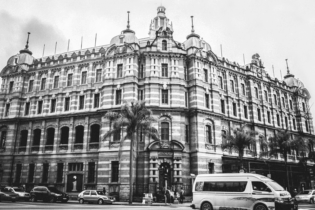South Africa needs 300 own-flagged merchant ships to optimally serve its trade needs, the SA Maritime Safety Authority (Samsa) said on Thursday.
“In Samsa’s opinion, we need a fleet of 300 ships of varying sizes able to sustain at least 25 percent of our trade,” said Samsa chief operations officer Sobantu Tilayi. South Africa currently has one ship on its shipping register — a research vessel. About 98 percent of the country’s export and imports move by sea. Speaking on the fringes of the SA Maritime Industry Conference (Samic) in Cape Town, Tilayi said South African companies spent about R37 billion on freight shipping costs in 2008. The figure had probably risen by about four to five percent a year since then. He said the country needed a “mix” of liquid and dry bulk carriers, as well as general cargo coastal vessels to service the African market. The three-day Samic conference is aimed at developing “a clear and well-resourced multi-stakeholder maritime sector investment strategy”. Samsa believes the country needs to re-establish a strong merchant fleet. In May this year, its CEO Tsietsi Mokhele told Parliament’s transport portfolio committee that up to 12,000 foreign vessels visited South Africa’s eight commercial ports — Saldanha Bay, Cape Town, Mossel Bay, Port Elizabeth, East London, Ngqura, Durban, and Richard’s Bay — each year. Mokhele said there was a “huge appetite” for investment in the local maritime sector. He said Samsa was talking to the Industrial Development Corporation with a view to creating special financial facilities to support the maritime sector. On Wednesday, his chief operations officer said “between public and private hands”, the funding could be found to start building a merchant fleet.“The first prize is to get industry to move without government involved.”
Tilayi said there were “industry frustrations” around issues such as tariff rates charged by the country’s ports, the infrastructure at those ports, and a lack of “regulatory enablers” to promote investment. “We would be the first to admit that there is an anomaly, particularly in our tariffs. It is cheaper to export bulk cargoes than to export value-added cargoes,” he said. “It costs more money to export a container of finished goods. But it’s those finished goods that would have created jobs in the process of being manufactured. But we make it so expensive to export that container.” A process was currently underway to address these anomalies. Ghana-based shipping consultant Tidiane Traore, said a recent African Union conference on boosting intra-African trade had noted that this was set to rapidly grow. “That’s where the growth is going to be. Intra-African trade is the answer to… creating employment on the continent,” he said. Traore, who is set to make a presentation at the conference on Friday, said there was great opportunity for South African shipping companies in West Africa, where 10 of the region’s 15 countries had coast-based economies. Source: the citizen.co.za






